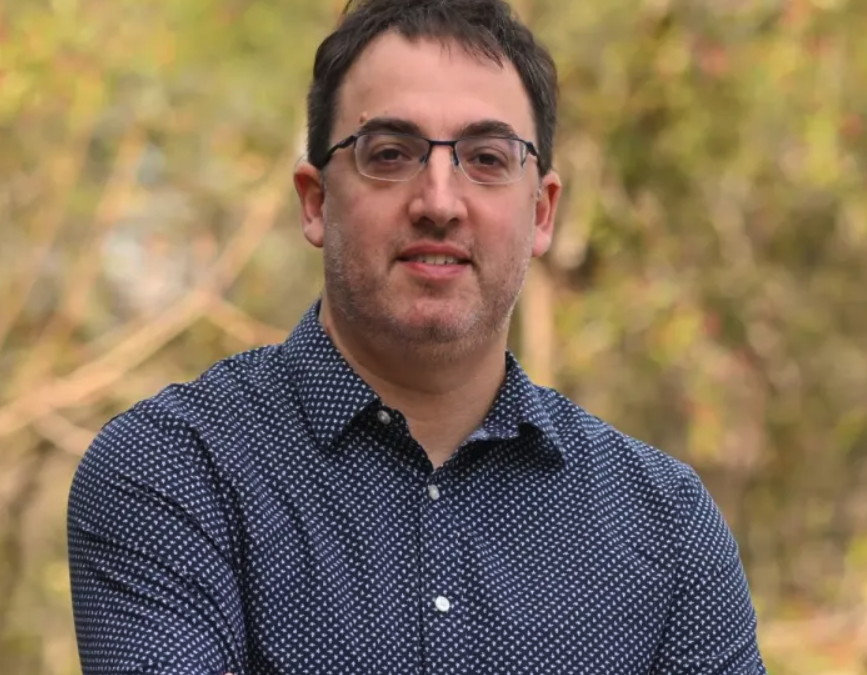This interview will focuses on scaling Agile, OKRs, working with private equity firms, what most organizations get wrong when adopting Agile marketing, and other topics. Our guest is Yuval Yeret, a SAFe fellow, co-contributor with me to IC-Agile’s Agility in Marketing certification.
[03] – Introduction
Jim Ewel welcomes our guest, Yuval Yuret, a Lean Agility and Flow Coach, Safe Fellow, and Professional Scrum Trainer. The episode will focus on the importance of shared goals like OKRs, the difference between OKRs and KPIs, and how Agile methodologies can help teams adapt to change.
[01:01] – Excitement About OKRs
Jim expresses excitement about the growing popularity of OKRs (Objectives and Key Results) and mentions how they are now considered a “silver bullet” in various industries, thanks to John Doerr’s book “Measure What Matters.”
[01:38] – Challenges with OKRs
Yuval discusses the common challenges organizations face with OKRs. Many companies adopt OKRs without sufficient expertise, leading to issues such as mapping everything to OKRs, lack of filtering, turning KPIs into OKRs, and creating OKRs that are tasks rather than strategic objectives.
[04:08] – Prioritizing OKRs
Jim and Yuval discuss the importance of prioritizing OKRs and ensuring they are specific and realistic. They highlight that OKRs should focus on improving product and organizational capabilities, not managing day-to-day operations.
[07:03] – OKRs vs. KPIs
Yuval explains the difference between OKRs and KPIs, emphasizing that OKRs are for growth, change, and improvement, while KPIs are for ongoing operations. They discuss how OKRs can impact KPIs and drive evidence-based decision-making.
[09:16] – Characteristics of Good OKRs
Yuval outlines the characteristics of effective OKRs, including a focus on outcomes, involvement of relevant teams in setting OKRs, cross-functional alignment, and the importance of making OKRs actionable.
[11:32] – Cascading OKRs
The discussion touches on how OKRs should cascade down from senior leadership to teams, with each level providing context and specific objectives related to the higher-level OKRs.
[15:18] – Example of OKRs
Jim and Yuval provide an example of how OKRs can be used to address issues like customer churn, where teams set OKRs based on the context provided by senior leadership.
[17:47] – Cross-Functional Collaboration
Yuval emphasizes the need for cross-functional collaboration when achieving OKRs. He suggests that organizations should set cross-functional OKRs or OKRs aligned with the desired business impact, leading to discussions about effective ways of working.
[21:31] – Organizational Implications
The conversation touches on how achieving OKRs may require changes in organizational design. While some organizations create separate cross-functional teams, others overlay a network of teams to focus on development work while keeping operational teams intact.
[23:52] – Applying Agile in Marketing
Yuval discusses the importance of applying Agile principles to the right areas of the organization, highlighting that while it may not be suitable for operational work like sales, it is highly relevant for areas like sales enablement and marketing.
23:59 – Cross-Functional Nature and Spare Time
Jim Ewel challenges the idea of expecting employees to handle new initiatives, like sales enablement, on top of their day-to-day responsibilities in their spare time. He highlights that this approach can lead to reduced focus and effectiveness.
24:52 – Focus on New Initiatives
Jim emphasizes the importance of allowing individuals to dedicate focused time to new initiatives instead of multitasking and context switching.
25:07 – Trade-off between Expertise and Focus
Yuval discusses the trade-off between utilizing the expertise of those involved in day-to-day operations and their ability to focus on new initiatives without distractions. He emphasizes the need for balancing both aspects effectively.
27:29 – Transparency in Work Processes
Yuval mentions the importance of making work processes, including improvement, development work, and operational work, transparent to leadership. This transparency helps organizations balance their OKRs with daily operations and drives conversations around feasibility.
27:42 – Agile Practices and Adaptation:
Jim and Yuval discuss the need for adapting agile practices to the unique needs of each organization. They emphasize the importance of a tailored approach and the use of agile practices when implementing agile.
29:19 – Empiricism, Inspection, and Adaptation
Yuval explains how leaders can leverage empiricism, inspection, and adaptation to achieve business agility. He emphasizes the need for leaders to embrace uncertainty, rely on data, and continuously adapt their strategies.
35:19 – Transition in Leadership
Jim and Yuval discuss the transition in leadership required for embracing agility and making data-driven decisions. They highlight the importance of leaders admitting uncertainty and promoting a culture of learning.
37:39 – Agile Mindset and Culture
Yuval emphasizes the significance of having an agile-friendly mindset at the leadership level for maximizing the benefits of OKRs and agility.
38:13.811 – Virtual Cycle of Improvement
Jim and Yuval discuss how Agile and OKRs create a virtual cycle of improvement, where management openness and agility lead to better OKR execution, which, in turn, fosters a more agile mindset.
40:33 – Agile Marketing
Jim asks Yuval about the challenges marketers face when adopting Agile. Yuval highlights differences between marketing and software development, including a preference for Kanban and less interest in formal processes.
44:40 – Language Barriers in Agile Marketing
Yuval discusses the language barriers between Agile practices and marketing, emphasizing the need to bridge this gap to accelerate Agile marketing adoption.
46:40 – Expertise and Experience
Yuval mentions that the pace of Agile marketing adoption is hindered by a lack of expertise in both Agile and marketing. He stresses the importance of aligning the broader Agile community with marketers.
48:57 – Business Agility and Expertise
Yuval anticipates the challenge of achieving business agility as organizations require expertise in both Agile and the business world. He suggests leveraging OKRs as a common framework to bridge the gap.
Closing Remarks: Jim and Yuval conclude the podcast with thoughts on the growing importance of OKRs in business agility and the need for combining Agile principles with business expertise to drive meaningful change.
Podcast: Play in new window | Download
Subscribe: RSS

